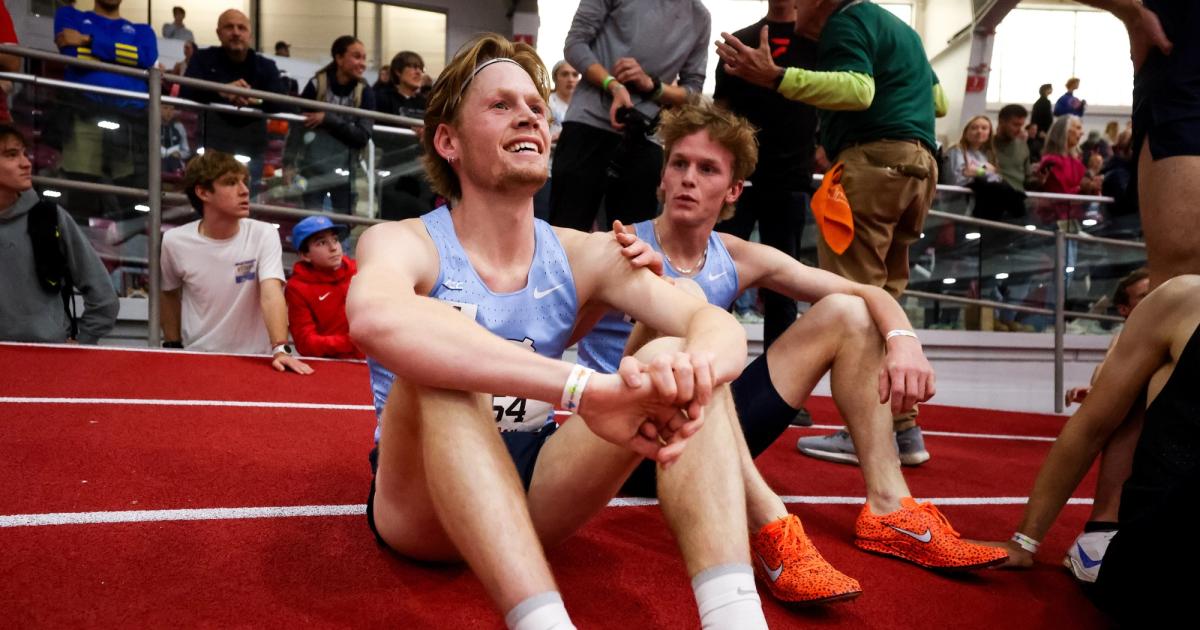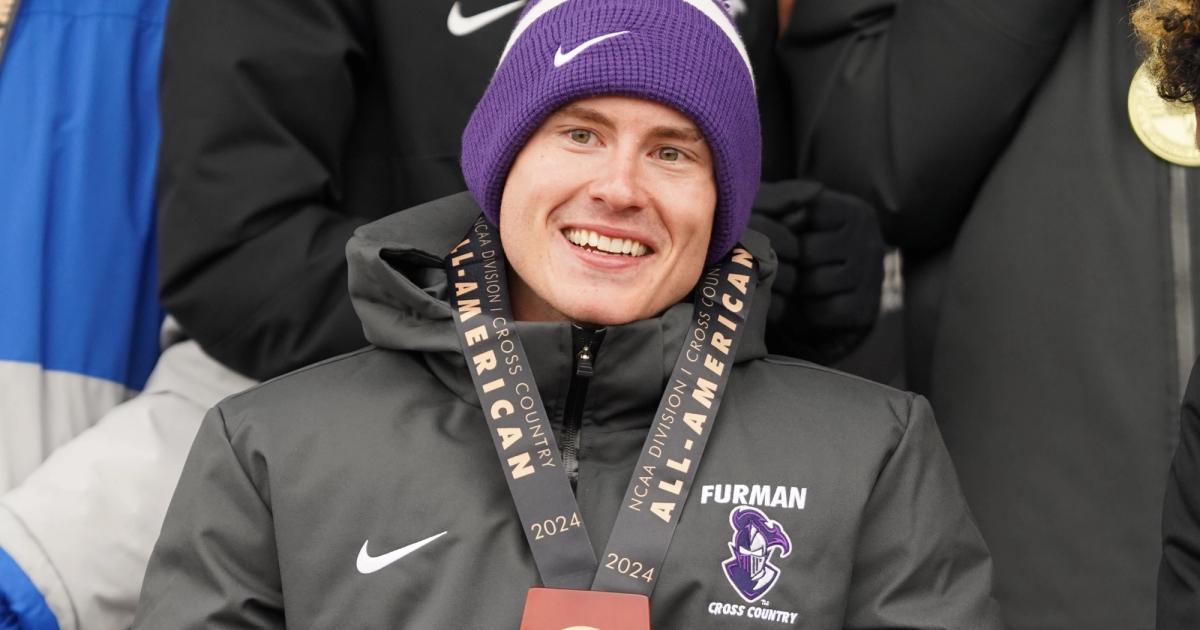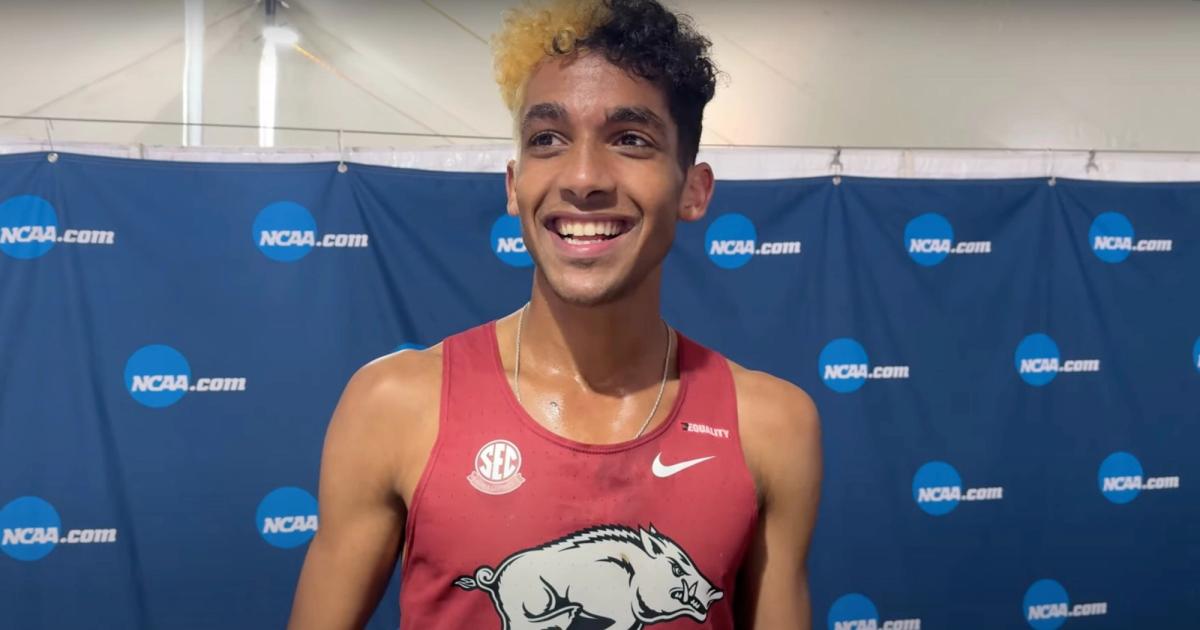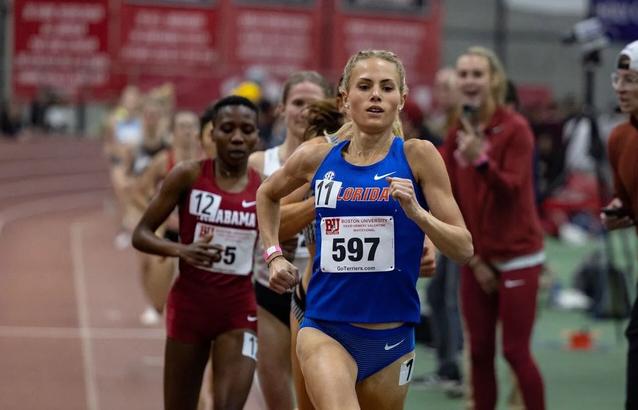By David Melly
December 11, 2024
The snow has barely settled on the Madison cross country course, but every All-American from Provo to Gainesville already has visions of Virginia Beach as they headed to the Boston University Sharon Colyear-Danville Invitational last Saturday to pick up an early NCAA indoor qualifier.
And that cross country fitness really paid off. NCAA champ Doris Lemngole is honing her Parker Valby impression to perfection – and improving on her predecessor’s work, as the Alabama sophomore knocked a few decimals off the indoor collegiate 5000m record with a 14:52.57 run. There was a bit of déjà vu in the event as the top four finishers (now #1, 3, 4, and 5 all-time indoors) were the same as NCAA XC, with only runner-up Hilda Olemomoi and third-placer Pamela Kosgei switching spots.
Not to be outdone, the middle-distance studs in the 3000m put not one, not two, not three, but four runners under Drew Bosley’s old record just two months before its second birthday. It was a tangle of Tar Heels up front as Parker Wolfe and Ethan Strand, the seventh- and eighth-place finishers from NCAA XC, ran a pair of astonishing 7:30s, with the 21-year-old Strand turning the tables on his teammate in the final strides. Poor Yaseen Abdalla (7:34.17) and Gary Martin (7:36.09) had to settle for a pair of shiny new PBs. At 7:30.15, Strand is also 0.01 seconds ahead of Galen Rupp on the all-time list, a time that would’ve been an American record were it not for a guy named Yared Nuguse on the same track in 2023.
It’s hard to call Graham Blanks’s 12:59.89 5000m win a failure simply because he missed Nico Young’s collegiate record of 12:57.14, and the newly-minted New Balance signee will head into the professional ranks with a World standard secured for 2025 and a comfortable spot at #5 on the U.S. all-time list indoors. Speaking of… the 13 fastest marks on the list all have one thing in common. So do the top 8 American 5000m women’s performances and three of the four collegiate distance records. They were all run on the BU track.
How the heck did we get here, and why is it starting to feel like Groundhog Day? Have super-spikes, wide turns, and bouncy plywood boards completely desensitized us to the thrill of fast times? (Editor’s note: The fans don’t seem to think so based on the crowd roar for Blanks’s win.) A 7:30 3000m is crazy for one collegian to run – let alone two on the same team. And this isn’t some kind of freak lingering effect of COVID eligibility either – Lemngole (22), Strand (21), Wolfe (22), Blanks (22), Martin (20), and Abdalla (23) aren’t in their eighth year of college or anything like that.
The simple answer might be the correct one: The secret is out on BU, and NCAA coaches have basically reached the consensus that extending the fall season two weeks past XC championships is a smart move for, well, pretty much anyone. That’s a relatively new phenomenon. At this meet in 2019, the top collegiate times were much different – 13:24 and 15:13 for 5000m; 8:01 and 9:10 for 3000m. The women’s 5000m was a bit of a trendsetter, to be fair, as both the 2018 and 2019 editions were fairly stacked and did some damage to the all-time lists at the time. But it wasn’t a foregone conclusion that every distance runner went to BU to lock up their Nattys qualifier mere days after the season began.
Is this good for the sport? Hard to say. It certainly makes for a fun kickoff event for the indoor season, and helps fill some airtime in a relatively quiet time of year for non-marathon runners. It does, however, take some of the wind out of the sails out of the first proper month of the season in January and virtually guarantees that the tippy-top few stars can coast into the next championship on autopilot instead of fighting for a top-16 mark at a last-chance meet ten weeks from now. It’s also gotten wildly expensive to enter (to the tune of $100 entry fees for a track 5k), which isn’t exactly a huge dent in the athletic budgets of SEC schools but does contribute in some way to the widening gulf between the haves and have-nots in the sport. BU has also never been the fastest place to run a sprint time, so a total chokehold on the indoor season remains slightly out of reach.
At the end of the day, watching talented athletes run fast remains fun and exciting. And until we come up with a totally non-time-based way to select championship fields at all levels – NCAA and professional – it’s not BU’s fault that they set scores of runners up for success better than anyone else. The Colyear-Danville Invitational has earned its place in the athletic calendar… but they gotta start writing the records set there in pencil.

David Melly
David began contributing to CITIUS in 2018, and quickly cemented himself as an integral part of the team thanks to his quick wit, hot takes, undying love for the sport and willingness to get yelled at online.




